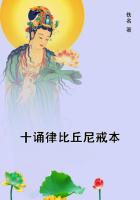Since writing to you before, I have read your admirable memoir on Salvia, and it has interested me almost as much as when I first investigated the structure of Orchids. Your paper illustrates several points in my 'Origin of Species,' especially the transition of organs. Knowing only two or three species in the genus, I had often marvelled how one cell of the anther could have been transformed into the movable plate or spoon; and how well you show the gradations; but I am surprised that you did not more strongly insist on this point.
I shall be still more surprised if you do not ultimately come to the same belief with me, as shown by so many beautiful contrivances, that all plants require, from some unknown cause, to be occasionally fertilized by pollen from a distinct individual. With sincere respect, believe me, my dear Sir, Yours very faithfully, CH. DARWIN.
[The following letter refers to the late Hermann Muller's 'Befruchtung der Blumen,' by far the most valuable of the mass of literature originating in the 'Fertilisation of Orchids.' An English translation, by Prof. D'Arcy Thompson was published in 1883. My father's "Prefatory Notice" to this work is dated February 6, 1882, and is therefore almost the last of his writings:]
CHARLES DARWIN TO H. MULLER.
Down, May 5, 1873.
My dear Sir, Owing to all sorts of interruptions and to my reading German so slowly, Ihave read only to page 88 of your book; but I must have the pleasure of telling you how very valuable a work it appears to me. Independently of the many original observations, which of course form the most important part, the work will be of the highest use as a means of reference to all that has been done on the subject. I am fairly astonished at the number of species of insects, the visits of which to different flowers you have recorded. You must have worked in the most indefatigable manner. About half a year ago the editor of 'Nature' suggested that it would be a grand undertaking if a number of naturalists were to do what you have already done on so large a scale with respect to the visits of insects. I have been particularly glad to read your historical sketch, for I had never before seen all the references put together. I have sometimes feared that I was in error when I said that C.K. Sprengel did not fully perceive that cross-fertilisation was the final end of the structure of flowers; but now this fear is relieved, and it is a great satisfaction to me to believe that I have aided in ****** his excellent book more generally known. Nothing has surprised me more than to see in your historical sketch how much Imyself have done on the subject, as it never before occurred to me to think of all my papers as a whole. But I do not doubt that your generous appreciation of the labours of others has led you to over-estimate what Ihave done. With very sincere thanks and respect, believe me, Yours faithfully, CHARLES DARWIN.
P.S.--I have mentioned your book to almost every one who, as far as I know, cares for the subject in England; and I have ordered a copy to be send to our Royal Society.
[The next letter, to Dr. Behrens, refers to the same subject as the last:]
CHARLES DARWIN TO W. BEHRENS.
Down, August 29 [1878].
Dear Sir, I am very much obliged to you for having sent me your 'Geschichte der Bestaubungs-Theorie' (Progr. der K. Gewerbschule zu Elberfeld, 1877, 1878.), and which has interested me much. It has put some things in a new light, and has told me other things which I did not know. I heartily agree with you in your high appreciation of poor old C. Sprengel's work; and one regrets bitterly that he did not live to see his labours thus valued. It rejoices me also to notice how highly you appreciate H. Muller, who has always seemed to me an admirable observer and reasoner. I am at present endeavouring to persuade an English publisher to bring out a translation of his 'Befruchtung.'
Lastly, permit me to thank you for your very generous remarks on my works.
By placing what I have been able to do on this subject in systematic order, you have made me think more highly of my own work than I ever did before!
Nevertheless, I fear that you have done me more than justice.
I remain, dear Sir, yours faithfully and obliged, CHARLES DARWIN.
[The letter which follows was called forth by Dr. Gray's article in 'Nature,' to which reference has already been made, and which appeared June 4, 1874:]
CHARLES DARWIN TO ASA GRAY.
Down, June 3 [1874].
My dear Gray, I was rejoiced to see your hand-writing again in your note of the 4th, of which more anon. I was astonished to see announced about a week ago that you were going to write in 'Nature' an article on me, and this morning Ireceived an advance copy. It is the grandest thing ever written about me, especially as coming from a man like yourself. It has deeply pleased me, particularly some of your side remarks. It is a wonderful thing to me to live to see my name coupled in any fashion with that of Robert Brown. But you are a bold man, for I am sure that you will be sneered at by not a few botanists. I have never been so honoured before, and I hope it will do me good and make me try to be as careful as possible; and good heavens, how difficult accuracy is! I feel a very proud man, but I hope this won't last...
[Fritz Muller has observed that the flowers of Hedychium are so arranged that the pollen is removed by the wings of hovering butterflies. My father's prediction of this observation is given in the following letter:]
CHARLES DARWIN TO H. MULLER.
Down, August 7, 1876.
...I was much interested by your brother's article on Hedychium; about two years ago I was so convinced that the flowers were fertilized by the tips of the wings of large moths, that I wrote to India to ask a man to observe the flowers and catch the moths at work, and he sent me 20 to 30 Sphinx-moths, but so badly packed that they all arrived in fragments; and I could make out nothing...
Yours sincerely, CH. DARWIN.













